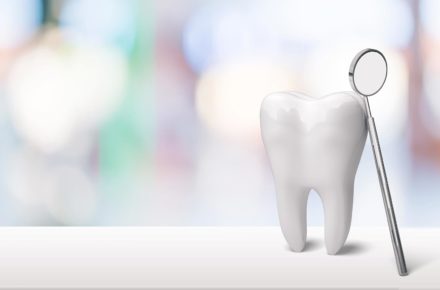What is included in a FREE consultation?
Providing estimates over the phone or online can be very difficult as each patient’s needs are very different. To ensure the best treatment plan for our patients, Lima Denture and Implant Solutions offers FREE, NO obligation consultations.
Our consultation is more than a quick conversation. We take the time to help inform our clients about all the different treatments that are available. This includes treatments that we may not offer directly. We strive to give every option there is available that best suits your expectations. This is important to us as we strongly believe in offering a service that people want, not only need.
We map out a plan of action and get all the pieces in order for you. This includes coordinating with different offices if necessary and providing estimates for each treatment you may desire.
How much do dental implants cost?
This is a very common question; however, there is no easy answer. Many times implant prices are much different from what is perceived. This is because there are many different implant designs and structures. We work with partners around the city that offer different implant placement services with different price points. Many of our partners offer special pricing to our clients. For better understanding of implant prices, we urge our clients to schedule a FREE consultation, and have one of our Denturists work through a price for your individual needs.
Why should I not try to repair my denture myself?
When a denture breaks, repairing the clean break is often very easy for a Denturist to do quickly and effectively. However, when a denture is repaired incorrectly, often the denture has to be re-broken and fixed before the final repair can be completed. In some scenarios, the denture can be rendered un-repairable.
How long does it take to get used to new dentures?
On the day that the prosthesis is complete, the Denturist and his staff always go through the most common issues patients will go through. We always give our clients a “take-home” bag with products that will help you with the everyday maintenance of the denture. We always recommend our clients wear their new denture for a minimum of one week before we see them for a post-check to address any fit or functionality issues. Each individual is different and as dentures are very personal, some people get used to their denture right away while others take a little longer; possibly up to a few weeks to settle with their new prosthesis.
Why are my dentures hurting?
When a new denture is fitted, it is very tight against the tissues of the mouth. In our mouths, there are areas that are soft, and will compress, however, there are also areas that do not compress, such as our pallets and the far back ridge on the lower jaw. These different areas react differently with new dentures and often, minor adjustments have to be made to adjust for the settling of a new denture.
We also have many different muscle attachments in our mouths. Often clients will say “one side is perfect, but the other side is giving me issues”. This is not caused by the denturist doing a good job on one side vs the other, but rather, it is caused by the muscles of the mouth being different in your mouth.
We always include adjustments up to 3 months after the initial delivery of the denture to allow the denture to properly settle on the tissues.
Is it normal that my speech is different with a new denture?
Any type of dental work has the possibility to alter the airway for speech. When this happens, the body easily adapts to the changes and often within the first few minutes of wearing a new prosthesis, your natural speech has come back. Some people have more difficulty depending on their individual situation, and which teeth have been replaced or added. Often, replacing front teeth have the greatest effect on speech. The best way to help with speech after getting a new denture is reading or talking out loud.
When can I start eating solid food?
Every situation has different limitations, however we usually suggest that our clients start using their teeth right away. Being cautious by eating slowly and paying attention to each bite is highly recommended at first, as dentures tend to change the feeling of biting and it can be hard to tell how hard you are biting down. Practicing chewing is very important. Chewing on both sides of your mouth is very important as a denture is only one piece, all connected, and is often based on balance of pressures.
Should I keep my dentures in while I eat?
Definitely yes! Some dentures are designed to only be esthetic; however, most dentures are in place to help you chew your food. It can be a challenge at first; however our Denture clinic staff is always available to give you some tips and tricks.
Should I keep my dentures in while I sleep?
This is a question that is asked many times by our clients and the answer changes for every individual and denture type. Taking out a denture at night is often recommended in order to give the tissues in the mouth a chance to breath and relax, increasing the blood flow and allowing tissues to remain healthy.
Some dentures, such as implant supported / retained dentures may be left in at night as they do not apply the same types of pressures on the tissue. To decide what is best for you, ask one of our denturists about your specific situation.
What is a Denturist?
A Denturist is a dental health care professional who provides denture care directly to the public. Our clients do not need a referral to see us and they can keep their current dental provider. Denturists examine patients who are missing some or all of their teeth, and can design, construct, repair and alter removable dentures.
A Denturist is an independent, self-regulated professional who works with other oral health care providers, including Dentists, Dental Hygienists, Dental Technicians, and Oral Surgeons, as part of the Dental Health Team to provide the best denture care and service to their patients.
What type of denture adhesive is the best?
When a certain level of retention and control cannot be achieved by the denture alone, adhesives can be an easy solution. Denture adhesives should never be used to fix a loose denture. It should only be used to add suction to a well fitted denture. There are 3 main types of denture adhesives; powders, pastes and pads. If a denture pad is being used, your dentures need a reline. Pastes tend to give you more blocking forces and they tend to last longer than powders, however, it goes on very thick and if the denture is fitting well, paste will sometimes make the denture sit off-balance in the mouth and cause other issues to occur. We recommend using powders most often due to the fact that the powder goes on very thin and does not cause the dentures to sit off-balance in the mouth. The powders will work well when the denture is fitting well and it is a great way to increase the suction on a denture.
How do I tell my loved one I have / need dentures?
Telling someone they need dentures can be a very awkward discussion. When coming to see us, we do not only offer dentures, we offer many different types of prosthetics, including some fixed solutions. Therefore, when talking to a loved one, mentioning that we offer many different options is a great way to introduce the idea of prosthesis.
We believe that your privacy is very important. When our office calls to confirm appointments, we always indicate that the message is from the professionals’ office and never specify that it is a dental/ denture clinic calling. This avoids any embarrassing moments and allows you to tell whoever you please about your dental situation.
Should I get a transitional denture?
A transitional denture is used to guarantee that you will always leave our office with something. Many of our clients have big procedures done and do not want to be left with no teeth. Transitional dentures are a great way to guarantee that you will always leave with teeth. Transitional dentures are used as temporary dentures, often required when there is a lot of work that is going to be done and healing has not been completed. They are an affordable way to ensure that when it comes time for your final prosthesis, you will be able to customise your look and have a well fitted denture.
How long does it take to get my dentures?
Dentures remain to be hand crafted prosthesis. However, coming directly to a Denturist allows you the best of both worlds, combining the clinical presence of a dentist as well as the technical capabilities of a dental technician. We fabricate all our dentures on-site and reduce the need to send out any of the work, therefore, we have the ability to control the quality and turn-around of a denture. On average, a brand new denture takes 2-3 weeks to complete. Different types can be done quicker, or may take longer. We have the ability to complete rush cases in under 1 week when necessary, however, we do charge a fee for that specific service.
We also have same day services such as repairs and relines.





